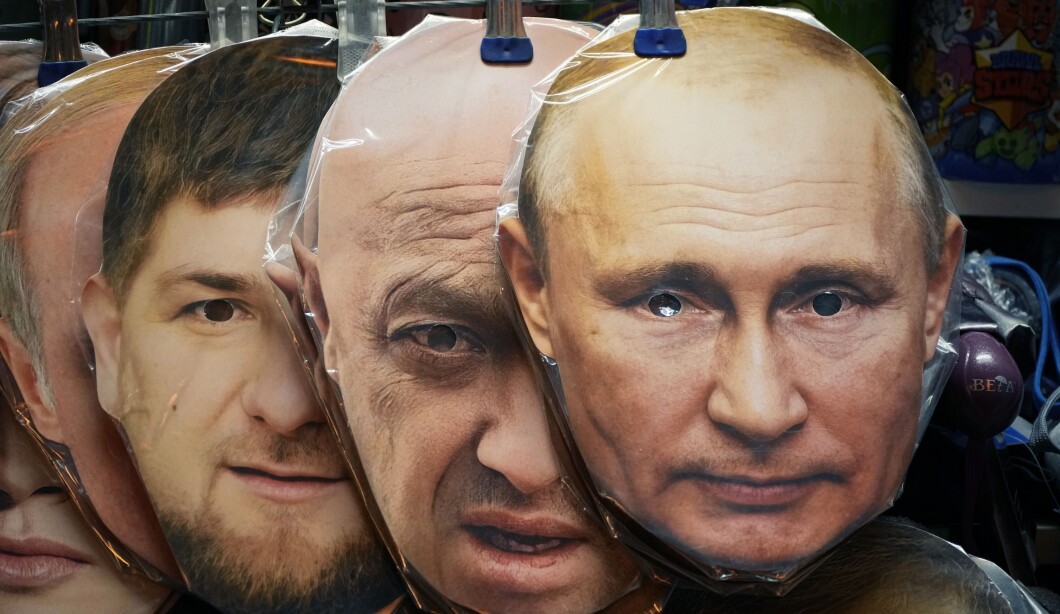
Russia’s regional governors have acquired the legal authority to form their own “private military companies,” just weeks after Russian President Vladimir Putin faced down the Wagner Group’s abortive march on Moscow.
“Kind of shooting themselves in the legs, actually,” a senior European official mused in reference to Putin and his associates. “That technically allows [the governors] to create private armies.”
SENATE VOTES TO KEEP CHINA FROM BUYING US FARMLAND
Russia’s State Duma adopted the legislation on the grounds that it would “ensure public safety during the period of mobilization, during martial law, in wartime,” according to a Newsweek translation. Yet the measure raises the specter of a tumultuous period of Russian politics and society as the Kremlin chief loosens his grip on the levers of military power in the country.
“Until recently, the tendency in Russia was towards ever greater centralization and the reinforcement of the ‘vertical of power’ — Putin’s key political project,” Johns Hopkins University’s Sergey Radchenko, a historian of Sino-Russian relations and author of a forthcoming book on “the Kremlin’s Cold War Bid for Global Power” wrote to the Washington Examiner. “However, what we are seeing today is something altogether different. It’s almost a throwback to feudalism.”

The move to allow governors to form their own paramilitary forces, so soon after Wagner Group chief Yevgeny Prigozhin demonstrated that such a company can turn their guns toward Moscow, suggests that Putin feels compelled to take extraordinary risks in order to sustain the war against Ukraine.
“If you think of Russia as a gangster state, it all starts to make sense,” Radchenko continued. “In a gangster setting, the use of force is not centralized but rather delegated down to lower level of local crime bosses who owe general allegiance to the head of the criminal organization. I think that’s what Putin’s model of governance has become.”
The new military companies would be equipped by the Russian state and empowered specifically to fight against incoming Ukrainian drone attacks.
“Employees of the companies have the right to terminate the operation of unmanned aerial, underwater, and surface vessels and devices, unmanned transport vehicles, and other automated unmanned systems in order to repel attacks,” the legislation states, per Meduza.
The legislation accompanied another measure that “will raise the upper age limit for conscription from 27 to 30,” as Meduza put it, thereby enlarging the number of men who can be compelled to join the war in Ukraine. And the empowerment of governors most likely reflects the Kremlin’s desire to generate new manpower amid a conflict that has taken a devastating toll on Russian forces while minimizing the political backlash that could accompany a wider mobilization.
“This is basically pushing down the share of responsibility,” Russian economist Konstantin Sonin, an expatriate dissident who faces the threat of criminal charges for criticizing the war if he returns to his home country, told the Washington Examiner. “I think that it’s done by Putin people, but basically, their task is as follows: Do national mobilization, without doing national mobilization. They’re trying to be creative, [about] how to mobilize people without saying that you are mobilizing people.”
The empowerment of regional governors almost invites a comparison to China’s Warlord Era a century ago following the collapse of the Qing Dynasty.
“In that period the authority of the central government virtually collapsed (though a regime in [Beijing] continued to carry out some of the functions of a national government),” as British historian J. A. G. Roberts wrote of the period. “Effective local or regional power fell into the hands of some dozens of tuchun, military governors who have become known in the west as the warlords. In those twelve years perhaps 160 wars were fought, the period therefore being known as that of warlordism.”
Yet Kremlin officials are keen to avoid such a turn of events, given their placement of these regional paramilitaries “under the auspices of internal security organs,” as the Institute for the Study of War noted, such as the FSB agency that Putin helmed before emerging as heir-apparent to outgoing Russian President Boris Yeltsin.
“The Russian military leadership is very alive to the risk of recreating a powerful Wagner analogue and is therefore trying to limit the scale and power each individual enterprise can obtain,” a team of Institute for the Study of War analysts observed in their July 25 assessment of the conflict.
Sonin, who is now a professor at the University of Chicago, cautioned against expecting that Russia’s governors will have ambitions of the sort that could fuel internecine conflict.
“I don’t think that Russia would ever be like China 100 years ago,” he said. “I think that these private regional armies, they will be participants in the … fight for industrial and financial assets of their regions, but not fighting other regions.”
The more immediate historical analogy for such a scenario is Russia in the decade before Putin came to power in the Kremlin.
“There [was] a lot of lawlessness. … It was just local bandits trying to control enterprises of national importance,” Sonin said. “And now, this process sets up [in a way] that these gangs will be now armed and have experienced people in the future.”
That could be a grim prospect for Russia and its people. “This law is another milestone towards Russia’s eventual disintegration and/or civil war,” Radchenko wrote. “The country’s outlook is extremely dim. That’s what happens, [to be frank], when a country is run by thieves and gangsters.”
CLICK HERE TO READ MORE FROM THE WASHINGTON EXAMINER
But the new legislation reinforces the perception that Putin is approaching the end of his tenure in the eyes of Sonin and other observers.
“It just speeds up the trends which have already started,” the senior European official said. “He turned this state into a totally criminal hierarchy, so …the organization will fall down when the authoritarian leader is gone because the institutions are not functioning. It’s not an institution-based thing; it’s a violence-based thing.”






